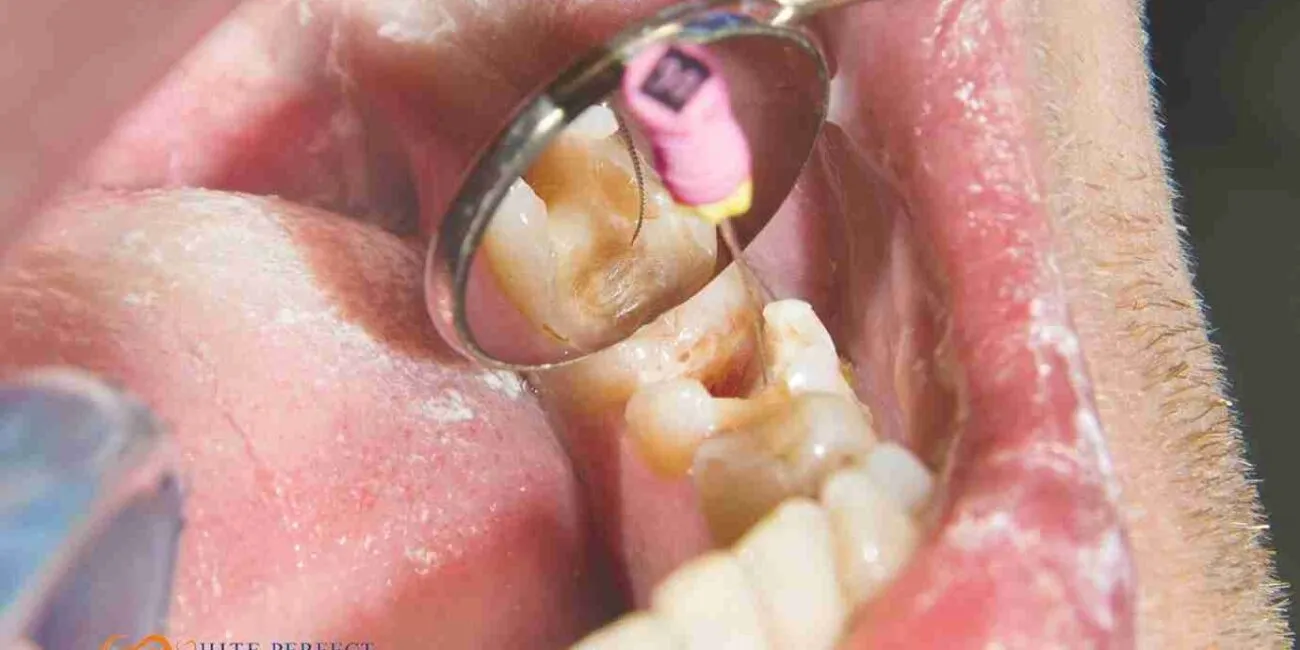

At White Perfect Dental, we understand that dental health is a vital component of your overall well-being. One common yet often misunderstood dental procedure is the root canal treatment. Early detection of these warning signs empowers you to seek prompt dental care, preventing further complications and safeguarding your oral health. A root canal becomes necessary when the soft inner core of your tooth, called the pulp, becomes infected or inflamed. This pulp contains nerves and blood vessels, and its inflammation or infection can cause significant pain and discomfort. This can result from severe decay, repeated dental procedures on the tooth, cracks, chips, or other injuries.
In this article, we will guide you through the four signs that suggest a root canal might be necessary. Recognizing these early warning signs can prompt you to seek timely dental care, potentially saving your tooth and alleviating discomfort. This article dives deeper into the root canal procedure, including what to expect during recovery and the long-term prognosis. Ultimately, our aim is to equip you with comprehensive dental knowledge, empowering you to make informed decisions about your oral health.
Many people fear root canal treatments because they assume they are painful. However, with modern anaesthetics and techniques, most patients experience little to no pain during the procedure. Discomfort after the treatment is usually mild and can be managed with over-the-counter pain medications.
Signs of an infected tooth include severe pain, prolonged sensitivity to hot or cold, swelling and tenderness in the gums, a recurring pimple on the gums, and sometimes discoloration of the tooth. If you experience any of these symptoms, it’s important to consult a dentist immediately.
While root canal treatments have a high success rate, they can occasionally fail. Signs of a failed root canal include persistent symptoms like pain, swelling, and sensitivity, or the reoccurrence of an abscess. If you notice any of these signs, contact your dentist for a re-evaluation.
The main alternative to a root canal is tooth extraction. However, it is generally best to preserve your natural tooth if possible. Extracting a tooth can lead to other dental issues, such as shifting teeth, bite problems, and the need for dental implants or bridges.
It is important to seek dental care as soon as you suspect you might need a root canal. Delaying treatment can lead to the spread of infection, increased pain, and the possibility of losing the tooth entirely. Early treatment ensures a better outcome and can prevent more complex problems.
Recognizing the signs that you might need a root canal and understanding the procedure are crucial steps in managing your dental health. At White Perfect Dental, we are committed to providing our patients with state-of-the-art dental care in a comfortable and caring environment. If you’re experiencing any of the symptoms mentioned, we encourage you to contact us immediately. Early treatment is key to saving your tooth and preventing further complications. Our team of experienced dentists is ready to help you achieve and maintain optimal dental health. Schedule your consultation today and take the first step towards a pain-free smile. Remember, addressing dental issues early will not only save your tooth but can also save you from future discomfort and additional costs.
Produced by MYSense




Fissure sealant
Dental fillings
Root canal treatment
Tooth extraction
Wisdom tooth removal
Crowns & bridges
Branches & Operating Hours
Contact Information
Make an Appointment


Fissure sealant
Dental fillings
Root canal treatment
Tooth extraction
Wisdom tooth removal
Crowns & bridges
Branches & Operating Hours
Contact Information
Make an Appointment
Copyright © White Perfect Dental Surgery Sdn Bhd (Company No. 201001012274 (1000198-P)).
Website Managed by MYSense. All Rights Reserved.